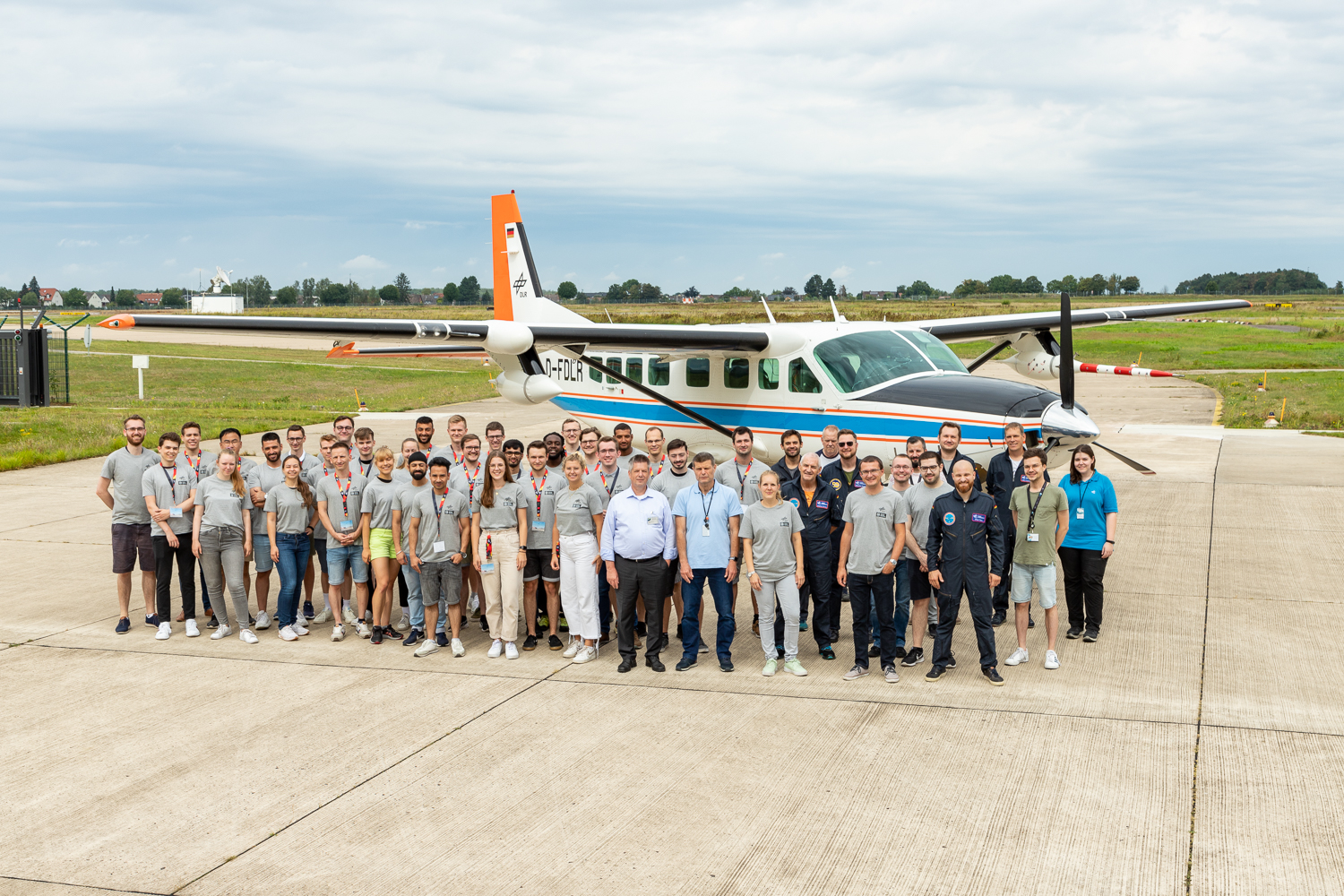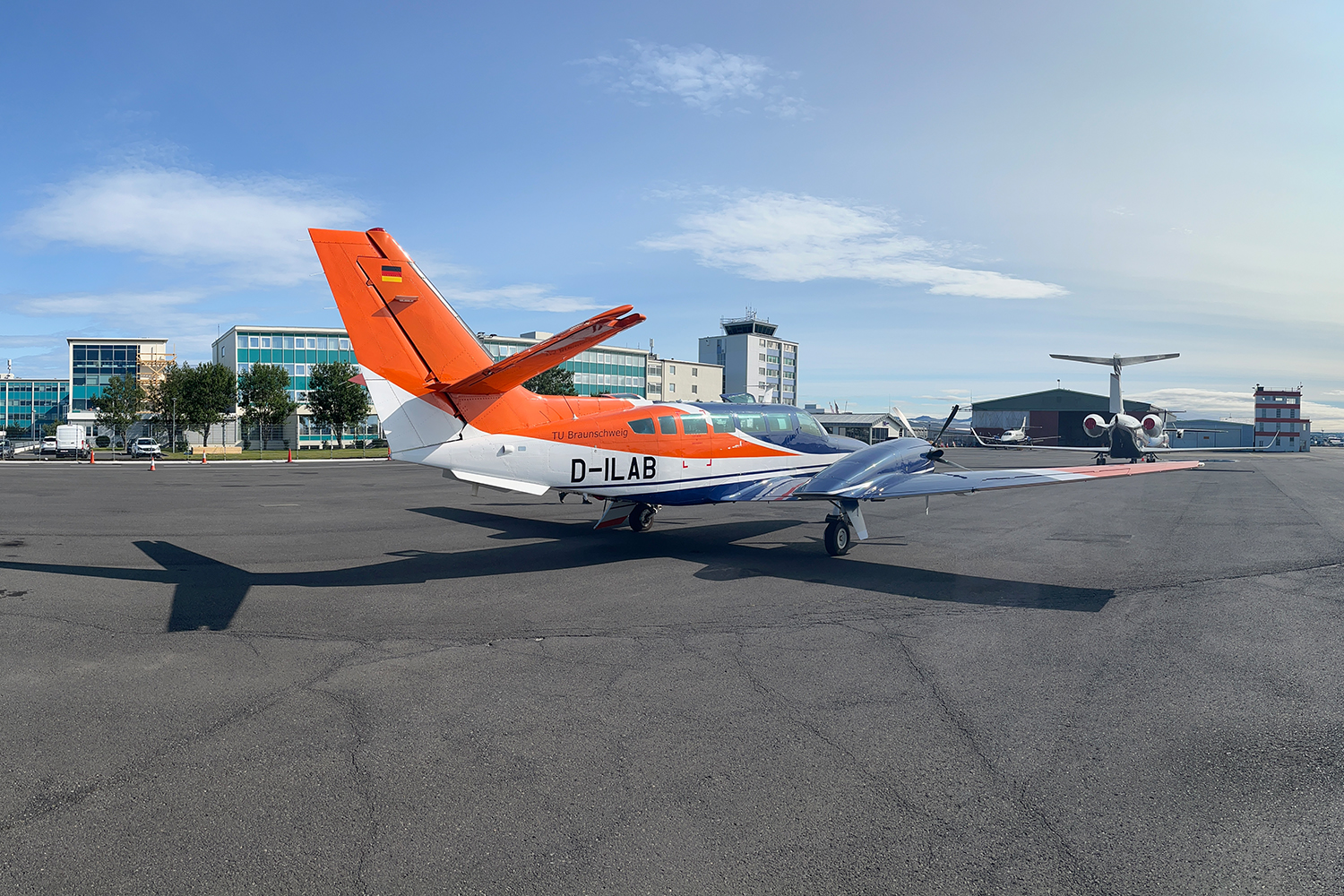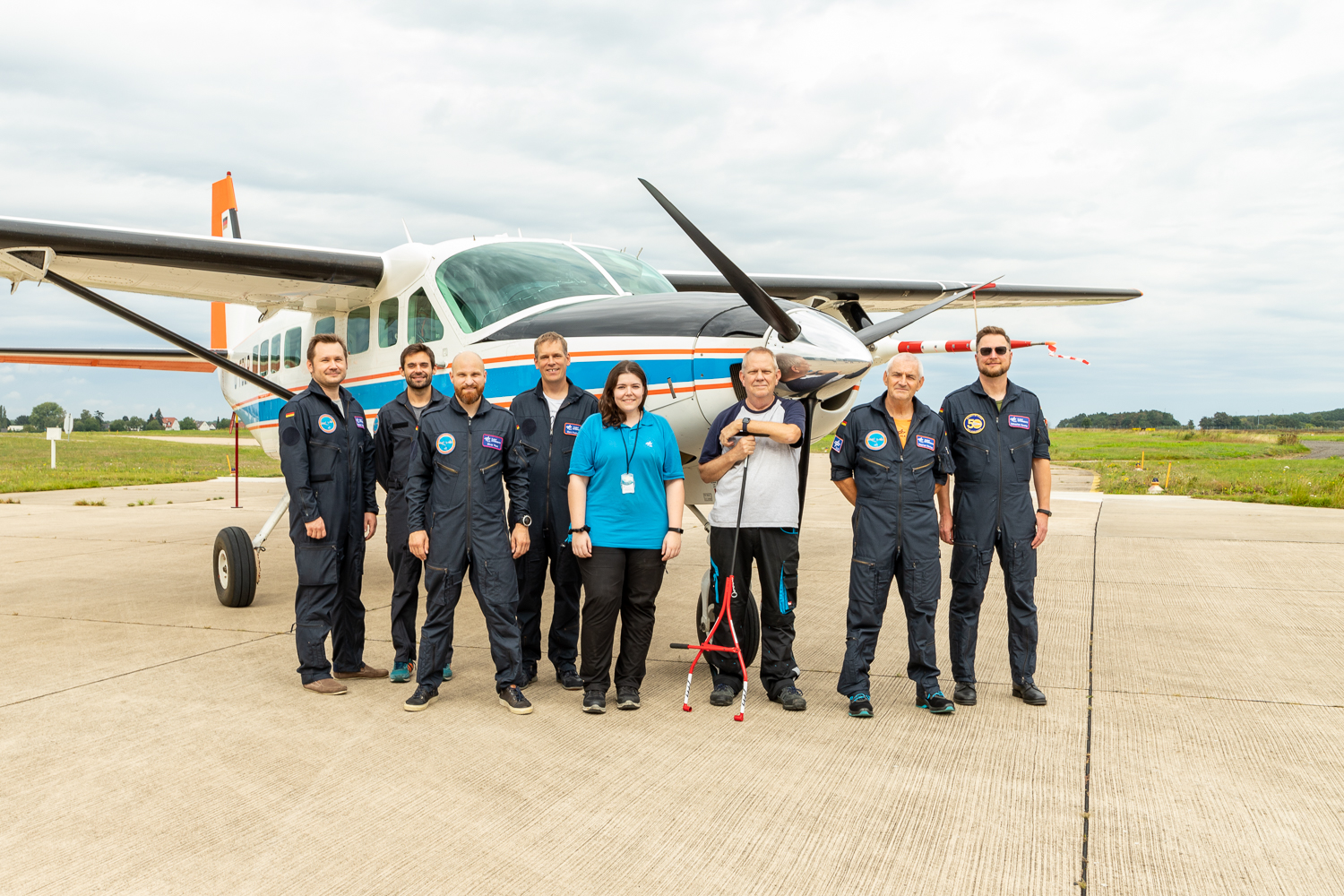Finally, flying! DLR_Uni_Summer_School 2023 brings students from all over Germany into the sky
In the sixth edition of the DLR_Uni_Summer_School, aerospace students from all over Germany had the unique opportunity to put the theoretical knowledge they had acquired in advance into practice during research flights. The event is organised by the Institute of Flight Guidance at Technische Universität Braunschweig and the German Aerospace Center (DLR).

All participants and organisers of the DLR_Uni_Summer_School 2023. Photo credit: Kristina Rottig/TU Braunschweig
From 11 to 15 September, 28 students from universities with a focus on Aerospace Engineering took part in the programme. Participants came from RWTH Aachen, TU Berlin, TU Braunschweig, TU Darmstadt, TU Dresden, TU Hamburg, TU Munich and the University of Stuttgart. The students were able to take part in measurement flights in research flight operations.
Research flights

TU Braunschweig’s research aircraft was at the Summer School on an international measurement campaign in the AWAKEN project (here during a stopover in Reykjavik on the way to the USA). Photo credit: Matthias Cremer/TU Braunschweig
As a rule, the research flights are always carried out by two aircraft: A Reims Cessna F406 “D-ILAB” of the Institute of Flight Guidance (IFF) of TU Braunschweig and a Cessna 208B Grand Caravan “D-FDLR” of DLR. This year, the TU research aircraft is on a large meteorological measurement campaign in the USA, so that only the DLR’s Cessna 208B was available during the Summer School period. However, this did not mean that there were fewer measurement flights on the programme for the students, but only that the measurement flights, two in number, took place on the same research aircraft.
This single-engine turboprop aircraft is stationed at the DLR site in Oberpfaffenhofen and has been transferred to Braunschweig for the Summer School to promote young talent, along with flight and measurement engineers. In addition to seats for the pilots, this aircraft also offers space for six students at individual measuring stations.
In the run-up to the week-long event, all participants have dealt with the theoretical basics of the measurement flights and presented them to the other students. The first day is usually characterised by an introductory session on the part of TU Braunschweig and DLR. The first two groups were already able to take their place in the aircraft in front of a console displaying the current measurement data in flight and write down all the important data for the flight test with the help of a test card. In addition to the handwritten notes, the students received a log from the measuring system that flew with them. With the help of this data, the individual groups carried out their evaluation of flight performance and flight characteristics independently. At the end of the Summer School, the results obtained from the data were presented to the other groups.
Supporting programme
During the flight programme, there are always six students in the sky. The students on the ground were given a tour of the DLR site, its infrastructure and that of the Research Airport. Within DLR, there were various tours of the individual institutes, but also tours of the simulators. Away from DLR, the students visited the tower at Braunschweig Wolfsburg Airport. In a lecture, they were able to learn more about the remote tower concept here in Braunschweig. The programme also included tours of two institutes of TU Braunschweig (Institute of Jet Propulsion and Turbomachinery and Institute of Fluid Mechanics), the company Aerodata and a tour of the Federal Bureau of Aircraft Accident Investigation (BFU).

DLR_Uni_Summer_School 2023: Thanks all from the organisation and technical team! Photo credit: Kristina Rottig/TU Braunschweig
